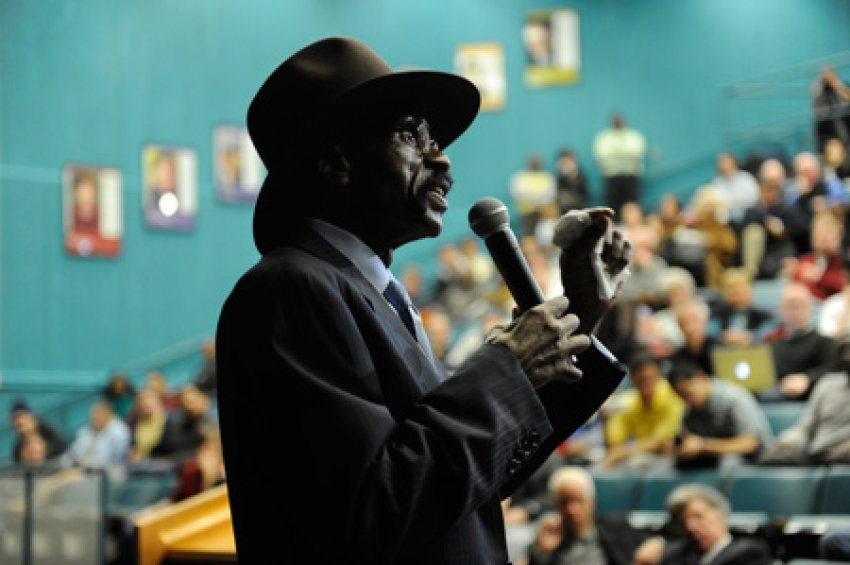
For a man who spent nearly four decades of his 76 years under the restrictive eye of the United States correctional system, few have ever touched as many lives as Rubin “Hurricane” Carter.
The world-class boxer-turned-wrongfully accused prisoner-turned-advocate for the rights of the unjustly jailed succumbed to cancer on April 20. But his memory and work will endure as long as there are people outside and inside the prisons of the world fighting for justice.
It is difficult to think of more than a handful of prisoners in history who have had their story memorialised in popular culture quite like Carter.
After his own infamous homicide conviction, Carter's case inspired an international human rights movement. There were rallies, marches and all-star musical concerts in his name. He was even the subject of a Bob Dylan Top 40 hit, the frenzied fiddle anthem “Hurricane”.
Carter also wrote, while behind bars, the bestselling book The Sixteenth Round: From Number 1 Contender to Number 45472. Finally, after his release, he was the subject of the Oscar-nominated Denzel Washington film The Hurricane.
Yet despite the overturning of his murder conviction, as well as a Hollywood canonisation, Carter never rested.
After decades behind bars, no one would have blinked if he had coasted on his celebrity for the remainder of his days. Instead, in 2004, Carter started a non-profit group in his adopted home of Toronto called Innocence International, aimed at shedding light on the cases of the wrongly convicted.
Carter believed that the only thing exceptional about his conviction was the fact that people were aware and outraged that it had happened. In a country with the highest incarceration rate on the planet, where quality legal representation is more a privilege than a right, Carter knew that he had left an untold number of sisters and brothers behind.
He had lived the racism of the criminal justice system, and he had lived among the poor and mentally ill behind bars. After his release, he was determined to be their advocate.
Carter wrote in February, as he lay dying, that he “lived in hell for the first 49 years, and have been in heaven for the past 28 years”. For him, heaven was doing this kind of work, and struggle was the secret of joy.
I had many an interaction with Rubin Carter, never revolving around boxing or his near-miss in 1964 to win the middleweight championship. Our shared work existed in the context of campaigns for prisoners' rights.
Carter never refused any of my requests, no matter how obscure the case, to lend his name to a campaign. As Denzel Washington said when he took Carter on stage with him when accepting the Golden Globe for best actor for The Hurricane, “He's all love”.
Sure enough, during the last days of his life and in terrible pain, Carter was trying to bring light to yet another prisoner he believed was being denied justice. On February 21, Carter published “Hurricane Carter's Dying Wish”, in the New York Daily News. It detailed the case of David McCallum, who has been jailed for murder for almost 30 years, convicted at the age of 16.
Carter wrote: “McCallum was incarcerated two weeks after I was released, reborn into the miracle of this world. Now I'm looking death straight in the eye; he's got me on the ropes, but I won't back down ...
“My aim in helping this fine man is to pay it forward, to give the help that I received as a wrongly convicted man to another who needs such help now.”
The best possible tribute to Carter would not be to listen to some Bob Dylan or read a few obits. It would be to contact new Brooklyn District Attorney Ken Thompson ― his “action line” phone number is 718-250-2340 ― and ask him to fulfill Hurricane's request to reopen the case of McCallum. After all, this was the dying wish of the Hurricane.
[First published at The Nation.]